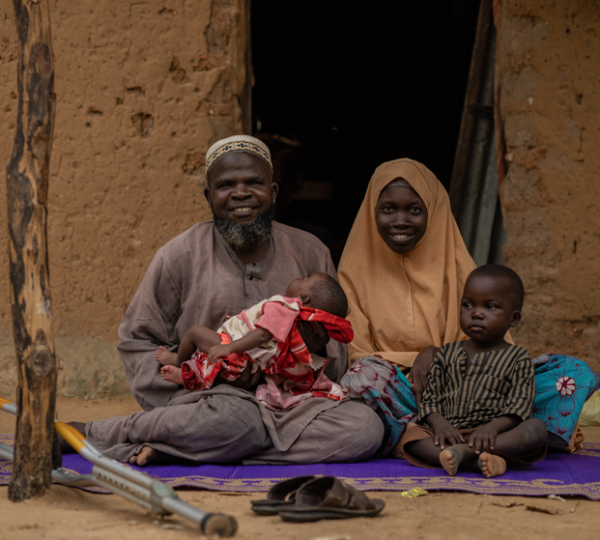Maternal mortality; a steady crashing flight
 In the course of my work, I have repeatedly asked a particular question to healthcare providers, researchers and other cadres of health workers between the ages of 18 and 30. Every time I asked the question, I got the same answer. Now dear reader, I ask you the same question; do you know of any woman – relative, friend, or friend’s relative, etc. who died during or shortly after pregnancy? Yes? Well you’re not alone. I have consistently gotten the same response from everyone I have asked. Hence, it is safe for me to infer that almost every Nigerian, age 18 and above knows 1 or more women who died giving life. It is then no surprise that maternal mortality in Nigeria still ranks amongst the highest in the world.
In the course of my work, I have repeatedly asked a particular question to healthcare providers, researchers and other cadres of health workers between the ages of 18 and 30. Every time I asked the question, I got the same answer. Now dear reader, I ask you the same question; do you know of any woman – relative, friend, or friend’s relative, etc. who died during or shortly after pregnancy? Yes? Well you’re not alone. I have consistently gotten the same response from everyone I have asked. Hence, it is safe for me to infer that almost every Nigerian, age 18 and above knows 1 or more women who died giving life. It is then no surprise that maternal mortality in Nigeria still ranks amongst the highest in the world.
The 2018 National Demographic and Health Survey (NDHS) records Maternal Mortality in Nigeria (also known as the Pregnancy-Related Mortality Ratio) in Nigeria at 556 for every 100,000 live births. This figure represents data collected for about 7 years preceding 2018 when the survey was conducted amongst women between the ages of 15 – 49. A report from the UN-supported population calculator records the daily number of live births in Nigeria at an abatement of 22,655. If you think this is unbelievable, data from UNICEF also authoritatively states that 7 million babies are born in Nigeria every year.
I ask again, how long do you think it takes to deliver 100,000 live births in Nigeria? To assist your estimation, think of the private hospital in your district, the general hospital in your town or the teaching hospital in your state. Try to guess how many women birth live children in those facilities. Think about how many of such facilities exist in your state and then multiply that by the 36 states in Nigeria and the FCT. Based on these figures, I can safely postulate that it takes less than a week to record 100,000 live births in Nigeria.
Last year, I facilitated a training at the Federal Medical Centre (FMC) in Makurdi, Benue State. For the duration of the training, an average of 30 births were recorded daily. Upon further findings, I discovered that 30 was amongst the least number of births actually recorded in that facility.
I started writing this blog sitting on my flight to Lagos, in a medium sized airplane. Out of curiosity, I got up and counted the rows. There were 29 rows excluding business class with 3 chairs on each side, making 6 chairs in a row. This means that a full flight will carry about 174 passengers. I stopped for a moment and thought, if maternal mortality was an airline, it means that 3 planes carrying only pregnant women in Nigeria are crashing weekly, without survivors and there is no outcry for such a disaster. Pregnancy-related deaths were, are and have remained an emergency in Nigeria and we have run out of excuses. It is time to put an end to this recurring disaster. Like Dr Margaret Chan said, “behind every number is a person who defines our common humanity”.
Research has shown that uptake of family planning contributes to reducing maternal mortality by reducing the number of births and, thus, the number of times a woman is exposed to the risk of mortality. It also lowers the risk per birth by preventing high-risk, high-parity births. Providing access to a variety of Family Planning commodities at affordable prices for ALL women is a ray of hope for ending maternal deaths in Nigeria.

Senior Technical Specialist on Family Planning SFH Nigeria




